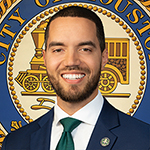We’ll start here.

The Texas Senate passed new bounty hunter-style abortion legislation Wednesday night to quash mailed abortion pills, targeting a method that has slipped through the cracks of abortion bans and contributed to the slight rise in the total number of abortions since the Supreme Court decided Dobbs.
Texas Gov. Greg Abbott (R), staunchly anti-abortion, is expected to sign it.
The bill would allow people to sue the manufacturers, deliverers and providers of mailed abortion pills for damages. It sets up a long-predicted abortion showdown: red state abortion bans versus blue state shield laws. Many blue states passed such laws after Dobbs, specifically to protect providers and patients in their states from red state prosecution.
The case law here is thin and the central questions largely untested. How far can states’ laws extend out of their territory?
“Patients leaving the state to access care, get the procedure and come home is one thing,” Jessie Hill, associate dean and reproductive rights scholar at Case Western Reserve University School of Law, told TPM. “But when you’re sending pills into a state, you are reaching into that state in a sense.”
[…]
Texas’ new legislation, by design, will be difficult to preemptively challenge, as it’s enforced by ordinary citizens. A legal clash is likely only after someone is sued under it.
“They’re trying to provoke a fight over the Comstock Act,” Hill said, referencing an 1873 federal law banning the mailing of abortifacients that the anti-abortion movement has been eyeing to ban mailing the medication.
Texas has been increasingly citing the Comstock Act in other legal attacks on abortion access, including in its effort to join a red-state attack on mifepristone. That zombified case is the latest iteration of an effort that the unanimous Supreme Court rejected for lack of standing last June. It’s dragged on at U.S. District Court Judge Matthew Kacsmaryk’s court, where a random assortment of red states has tried to reinvigorate it under the infamously anti-abortion judge, despite the litigation having no jurisdictional ties to north Texas, where his courtroom is based. Texas is currently trying to remedy that problem, asking to join the case earlier this month.
The fight over medication abortion is the fundamental one that will shape the post-Dobbs world. The anti-abortion movement has been stunningly successful, even pre-Dobbs, in regulating surgical abortion out of existence in large swaths of the country. Medication abortion, though, which has steadily increased in popularity, has proven much harder to track and kill.
“It feels like we’re in a Prohibition-like era,” Hill said. “A ban doesn’t mean abortions stop happening.”
It’s hard to know what will happen but easy enough to see how it will play out, at least in the beginning. Someone will file one of those bounty hunter suits against a doctor in New York or wherever, the relevant county clerk in that state will refuse to process the judgment based on that state’s abortion protection laws, and off we go into the federal courts. The one thing I know for sure is that the next time the Dems have a trifecta in Washington they damn well better pass federal laws to protect abortion access and end all of this bullshit. Until then, this is what we’re gonna get.
We’re also gonna keep getting stuff like this.
A Corpus Christi woman is suing an abortion pill supplier, alleging a former sexual partner terminated her pregnancy by lacing her drink with medication produced by the group.
In a wrongful-death lawsuit, filed Monday in a Texas federal court, the woman claims her former partner secretly dissolved abortion pills from Aid Access into a hot beverage and served it to her leading to the termination of her pregnancy.
Aid Access is a European nonprofit founded by Dutch physician Rebecca Gomperts that provides access to medication abortion by mail in all 50 states.
U.S. doctors in Democratic-led states have been able to use abortion shield laws to prescribe and mail Aid Access pills to patients in anti-abortion states. In February, a New York doctor was fined $100,000 and ordered by a Collin County judge to stop prescribing and mailing abortion pills to Texans.
“The Court has personal jurisdiction over Aid Access and Rebecca Gomperts because they purposefully and knowingly mailed abortion-inducing drugs into Texas in violation of state and federal law,” court documents read.
The complaint alleges Aid Access violated the Comstock Act, an 1873 federal law that bans the mailing of “obscene” materials, including those related to contraception and abortion.
[…]
The woman is also suing her former partner, accusing them of violating Texas law, which prohibits almost all abortions after six weeks.
The woman became pregnant in February and her and her partner, who was stationed in Corpus Christi to become a Marine Corps pilot, disagreed on how to handle the pregnancy, according to court documents.
Over the course of the next three months, the woman and her partner went back and forth on how to handle the situation with the partner advocating for the woman to get an abortion, text conversations in the court documents show.
“I could make us some warm relaxing tea instead of alcohol,” the partner’s message reads.
The lawsuit alleged on April 5, he visited the woman’s house and laced her hot chocolate with an abortion pill while she watched TV. Within 30 minutes consuming the drink she began hemorrhaging and cramping.
She went to the emergency and lost her pregnancy at eight weeks, according to court documents.
The lawsuit comes a month after a Texas man, Jerry Rodriguez, sued a California doctor for wrongful-death after his girlfriend allegedly used pills prescribed by the doctor to terminate two pregnancies.
That’s from a few weeks ago. I didn’t blog about it at the time because sometimes it’s just too much and I don’t want to deal with it.
But then this happened.
A man accused by his Texas neighbor of spiking her drink with an abortion-inducing medication is fighting back, alleging in a new countersuit that she fabricated the incident to help bolster the Legislature’s effort this month to ban mail-in abortion pills.
In the 96-page filing, Christopher Cooprider’s attorney argues that the original claim was a political ploy.
“After seeing criminal authorities reject her fantastical story, why has she recycled it here in a federal court complaint filed on August 11, 2025?” wrote Cooprider’s attorney, Mikal Watts. “So it could be immediately and widely disseminated to national and Texas media outlets that morning prior to a Senate State Affairs Committee hearing set to begin at 10:00 a.m. that same day.”
Liana Davis, of Corpus Christi, had sued Cooprider as well as the online abortion pill supplier Aid Access and its doctor for wrongful death, claiming that he laced her hot chocolate with medicine provided by the group.
Cooprider now denies those claims and is seeking $1.1 billion in damages.
[…]
Watts, Cooprider’s attorney, is a major Democratic donor who long said he opposes abortion in most cases, which became a flashpoint in 2007 when he considered a run against Republican U.S. Sen. John Cornyn. He later opted not to run.
“While right-to-life advocacy is commendable and perhaps justified under the Sixth Commandment that “Thou Shalt not Kill,” one may not capriciously cross the Rubicon from the elevated light of righteousness brought by sincere religious advocacy into a pit of darkness and lies by purposefully ignoring the Ninth Commandment – “Thou Shalt Not Give False Testimony against Thy Neighbor,’” Watts wrote in the countersuit.
“That is what Davis has done here with this suit, and she must be punished for it.”
[…]
Cooprider, in his countersuit, claimed that Davis had previously been accused of poisoning her ex-husband, that she drank around her children and was an irresponsible mother, and that she became emotionally infatuated with Cooprider after he tried to end their brief relationship.
“When Cooprider did not agree to stay in a relationship with her, Davis began an escalating destructive, obsessive and compulsive, pattern of behavior which included: destruction of evidence, multiple faked miscarriages, demands for gifts and attention, blackmail, threats of court martial, and now, a false accusation of murder against Cooprider,” the suit reads.
Cooprider also claimed that Davis had previously asked him to procure abortion pills for an earlier, alleged pregnancy that turned out not to be real.
Oh my. I will definitely keep an eye on this one now. Mother Jones, where I saw this update first, and The Barbed Wire have more.













